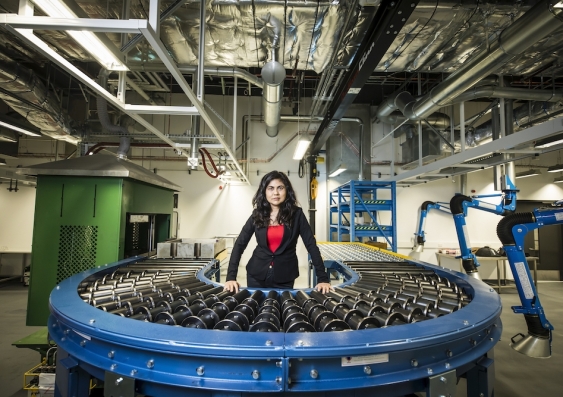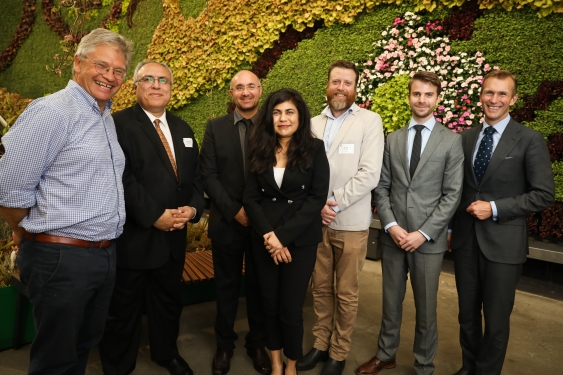Smart 'microrecycling' technology earns new funding
Technology from UNSW that can reform waste into new materials is closer to commercialisation thanks to new NSW government funding.
Technology from UNSW that can reform waste into new materials is closer to commercialisation thanks to new NSW government funding.

Stuart Snell
UNSW External Communications
0416 650 906
s.snell@unsw.edu.au
UNSW Sydney’s SMaRT Centre has secured nearly $1 million in NSW government funding to help commercialise a technology that can reform waste materials into value-added products for use in the built environment.
UNSW was one of five winners to share in $5 million from the new Physical Sciences Fund of the NSW Office of Chief Scientist and Engineer to help bring industry-changing ideas to market.
The funding will help to commercialise UNSW's Microfactorie concept, which can reform waste materials including glass, single-use coffee cups, used coffee grounds and textiles into ceramic-based panel products that can be used as tables, countertops and tiles.
In announcing the funding recipients, NSW Planning and Public Spaces Minister Rob Stokes said the Physical Sciences Fund translated scientific innovation into tangible, real-world outcomes to benefit communities, the state economy and the environment.
“NSW is renowned for its innovative science sector, which is why we’re not only investing in developing and nurturing ideas but commercialising them too,” Mr Stokes said.
“Our inaugural winners are turning rubbish into luxe building products, using drones to save the environment, improving the efficiency of mines and the wine industry, and literally pulling water from thin air,” he said.
NSW Chief Scientist and Engineer Professor Hugh Durrant-Whyte said bringing great ideas to market was a challenge facing universities and small companies.
“In addition to giving financial support, the Physical Sciences Fund provides advice and facilitates collaborations to ensure that each project’s scientific rigour is matched with seasoned entrepreneurial know-how,” Professor Durrant-Whyte said.

Veena Sahajwalla with NSW Chief Scientist Hugh Darrant-Whyte, left, NSW Planning and Public Spaces Minister Rob Stokes, right, and other funding recipients, from second left, Professor Behdad Moghtaderi, Dario Valenza, Dr William Palmer and Chris Beal.
The inaugural recipients include a light-weight data gathering drone, a magnetic resonance analyser, architectural surfaces manufactured from recycled materials, agricultural technologies and a device that produces drinking water from atmospheric moisture.
Almost 60 applications were received for the fund, with the five winners assessed and selected by an independent expert panel.
Director of the UNSW Centre for Sustainable Materials Research and Technology (SMaRT), Professor Veena Sahajwalla said new funding would help advance commercialisation prospects of the team’s microrecylcing science.
“We’ve developed manufacturing technology and capability so waste can be reformed into value-added materials and products, and kept out of landfill. Environmental benefits aside, this scientifically developed technology will help to drive the emerging circular economy, create jobs and enhance social and economic outcomes, not just for local communities but more broadly for the nation,” she said.